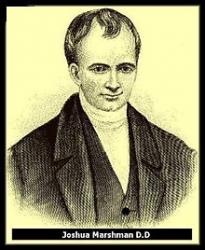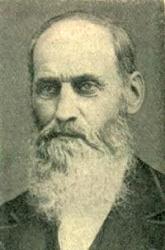Planning worship?
Check out our sister site, ZeteoSearch.org,
for 20+ additional resources related to your search.
- |
User Links
Person Results
Sir Walter Scott

1771 - 1832 Person Name: Sir Walter Scott, 1771-1832 Translator of "That day of wrath, that dreadful day" in Methodist Hymn and Tune Book Walter Scott was born in Edinburgh, August 15, 1771. In 1786, he commenced his apprenticeship as writer to the Signet. In 1796, he first appeared before the public in a translation of Burger's "William and Helen." Many poetical works followed, until in 1814, he began the series of "Waverly Novels." He died at Abbotsford, September 21, 1832. It is related that on his death-bed he distinctly repeated portions of the Latin original, upon which "That day of wrath, that dreadful day" is based.
--Annotations of the Hymnal, Charles Hutchins, M.A., 1872
======================
Scott, Sir Walter, Bart., was born in Edinburgh, Aug. 15, 1771, and died at Abbotsford, Sept. 21, 1832. Although so successful and widely known as a poet, he made no direct contributions to hymnody whatever. His condensed rendering of the “Dies Irae", and his hymn of Rebecca in Ivanhoe, "When Israel of the Lord beloved" (q.v.) were utilized as hymns for congregational use by others, but were never intended for such a purpose by himself. His work and rank as poet, novelist, and historian are fully set forth in his Life by J. G. Lockhart.
--John Julian, Dictionary of Hymnology (1907)
Sir Walter Scott
Thomas Blacklock

1721 - 1791 Person Name: Blacklock Author of "Come, O my soul! in sacred lays" in Hymns and Tunes Blacklock, Thomas, D.D., born at Annan, Dumfriesshire, November 10, 1721. He studied at the University of Edinburgh, and was, in 1759, licensed to preach. In 1762 he was ordained pariah minister of Kirkcudbright, but, on account of his blindness, had to resign and retire on an annuity. He went to Edinburgh and there received as boarders University students and boys attending school. In 1767 he received the degree of D.D. from the University of Aberdeen (Marischal College). He was one of the earliest and most helpful literary friends of Robert Burns. He died at Edinburgh July 7, 1791. His Poems were often printed—in 1756 at London, with a Memoir by the Rev. Joseph Spence, Professor of Poetry at Oxford; in 1793, at Edinburgh, with a Memoir by Henry Mackenzie, &c. They include 2 Psalm Versions, and 4 Hymns. "Hail, source of pleasures ever new," is altered from the Hymn to Benevolence, and "Father of all, omniscient mind," is from his version of Psalm 139. No. 16 in the Translations and Paraphrases of 1781, “In life's gay morn," &c, is also ascribed to him. [Rev. James Mearns, M.A.]
-- John Julian, Dictionary of Hymnology (1907)
Thomas Blacklock
John Sterling
1806 - 1844 Author of "O Source divine, and Life of all" in Jubilate Deo Sterling was born at Kames Castle, Bute, July 20, 1806, and died at Ventnor, Isle of Wight, Sep. 18, 1844.
--John Julian, Dictionary of Hymnology, Appendix, Part II (1907
================
Sterling, J., p. 1595, ii. (Under "When up to nightly skies," &c.) Another of his hymns which was given in the American Hymns of the Spirit, 1864 and Martineau's Hymns of Praise and Prayer, 1873, No. 31, "0 Source divine and Life of all" (Reverence and Love), has passed into a few modern American collections, including The Pilgrim Hymnal, 1904. It is dated 1840.
--John Julian, Dictionary of Hymnology, New Supplement (1907)
John Sterling
Joshua Marshman

1768 - 1837 Person Name: J. Marshman Translatore of "O thou, my soul, forget no more" in Songs for the Lord's House Marshman, Joshua, D.D., was born at Westbury Leigh, Wiltshire, April 20, 1768, and educated for the Baptist ministry at the College at Bristol. In Oct. 1799 he joined Dr. Carey at Serampore, India. In 1826 he visited England, and returned to India in 1829. He died at Serampore, Dec. 5, 1837. His translation of Krishnu Pal's hymn is noted at p, 633, ii. In his Baptist Hymn Writers, Portland, U.S.A., Dr. Burrage attributes the original hymn, “Hail, precious book divine" (Holy Scripture) to him, but leaves its date and place of publication unnoted.
--John Julian, Dictionary of Hymnology, Appendix, Part II (1907)
====================
In early life he evinced a fondness for books and study. In 1794, he accepted the charge of a school connected with the Broadmead Baptist church, Bristol, and not long after he was baptized, and united with the church. At the same time he entered the theological seminary at Bristol, and devoted himself to the Hebrew, Syriac, and other languages. Becoming interested in Dr. Carey’s work in India, he and his wife, in 1799, offered themselves for missionary service, and sailed May 29, for India. They landed at Serampore October 13, and the mission was established there, Dr. and Mrs. Marshman opening a boarding-school to aid them in the prosecution of their work. In 1806, Dr. Marshman commenced the study of the Chinese language for the purpose of translating the Scriptures into that tongue. In 1814, he published his “Key to the Chinese Language,” and in fifteen years from the time he commenced his study of the language he completed the publication of the first portion of the Scriptures in the Chinese language, consisting of the book of Genesis, the four Gospels, and Paul’s Epistles to the Romans and Corinthians. In 1826, he visited England, and returned in India in 1829…In 1811, Brown University conferred upon him the honorary degree of Doctor of Divinity.
Marshman’s works include:
Dissertation on the Characters and Sounds of the Chinese Language, 1809
The Works of Confucius, Containing the Original Text, with a Translation, 1811
A Defence of the Deity and Atonement of Jesus Christ, 1822
Sanskrit Grammar, with Henry Carey
Bengalee and English Dictionary, with Henry Carey
http://www.hymntime.com/tch/bio/m/a/r/s/marshman_j.htm
=================
http://en.wikipedia.org/wiki/Joshua_Marshman
Joshua Marshman
James W. Wilson
Person Name: J. W. W. Author of "Almighty Maker of my frame" in The Christian Hymnal
James W. Wilson
Santolius Victorinus
1630 - 1697 Author of "Blest Hour of Prayer" in Sacred Praise
Santolius Victorinus
William B. Rands
1826 - 1882 Author of "One Lord there is, all lords above" in The Pilgrim Hymnal Rands, William Brighty, was born in Chelsea in 1826 and died at Dulwich on April 23rd, 1882. He was a considerable contributor to literature, but published his works under various names—-e.g. "Matthew Browne," "Henry Holbeach," "Lilliput Levee," &c. One hymn by him of great force and originality has found its way into recent hymnals, "One Lord there is all Lords above" (God a consuming fire to sin ). It appeared originally in his "Lilliput Lectures," 1872. It has been included in Horder's Congregational Hymns, 1884, and in the Congregational Church Hymnal, 1887. [Rev. W. Garrett Horder]
--John Julian, Dictionary of Hymnology (1907)
William B. Rands
Walter Rauschenbusch
1861 - 1918 Person Name: W. R. Translator of "Jesu, und kann es möglich sein?" in Evangeliums-Lieder 1 und 2 (Gospel Hymns)
Walter Rauschenbusch
Roswell F. Cottrell

1814 - 1892 Person Name: R. F. Cottrell Author of "O solemn thought! and can it be" in The Seventh-Day Adventist Hymn and Tune Book Born: January 17, 1814, Brookfield, New York.
Died: March 22, 1892, Mill Grove, New York.
Buried: West Ridgeway Cemetery, Medina, New York.
Cottrell was known as a writer, poet and minister. A member of the Seventh-day Adventists, he served for a time on the editorial committee of The Review and Herald in Battle Creek, Michigan. As of 1857, he was living in Mill Grove, New York.
--www.hymntime.com/tch
Roswell F. Cottrell
Emma Pitt
b. 1846 Author of "He Is Very Near" in Gathered Jewels Born: 1846, Maryland.
Pitt was living in Baltimore, Maryland, by 1880, and through at least 1910. She may have died before 1920, as the daughter with whom she was living in 1910 was on her own and still single in 1920.
--www.hymntime.com
Emma Pitt


 My Starred Hymns
My Starred Hymns

